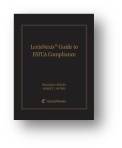47 countries and major financial centers on May 6, 2014 committed to automatic exchange of information between their jurisdictions. All 34 OECD member countries, as well as Argentina, Brazil, China, Colombia, Costa Rica, India, Indonesia, Latvia, Lithuania, Malaysia, Saudi Arabia, Singapore and South Africa endorsed the Declaration on Automatic Exchange of Information in Tax Matters that was released at the May 6-7, 2014 Meeting of the OECD at a Ministerial Level.
The Declaration commits countries to implement a new single global standard on automatic exchange of information (“CRS” or “GATCA”).
Common Reporting and Due Diligence Standards (“CRS”)
February 13 the OECD released the Standard for Automatic Exchange of Financial Account Information Common Reporting Standard.
The CRS calls on jurisdictions to obtain information from their financial institutions and automatically exchange that information with other jurisdictions on an annual basis. It sets out the financial account information to be exchanged, the financial institutions that need to report, the different types of accounts and taxpayers covered, as well as common due diligence procedures to be followed by financial institutions. Part I of the report gives an overview of the standard. Part II contains the text of the Model Competent Authority Agreement (CAA) and the Common Reporting and Due Diligence Standards (CRS) that together make up the standard.
Presenting the new standard back in February 2014, OECD Secretary-General Angel Gurría said: “This is a real game changer. Globalisation of the world’s financial system has made it increasingly simple for people to make, hold and manage investments outside their country of residence. This new standard on automatic exchange of information will ramp up international tax co-operation, putting governments back on a more even footing as they seek to protect the integrity of their tax systems and fight tax evasion.”
Global Forum Peer Reviews and Monitoring
G20 governments have mandated the OECD-hosted Global Forum on Transparency and Exchange of Information for Tax Purposes to monitor and review implementation of the standard. More than 60 countries and jurisdictions of the 121 Global Forum members have now committed to early adoption of the standard, and additional members are expected to join this group in the coming months.
What are the main differences between the GATCA and FATCA?
The CRS is also informally called “GATCA”, referring to the “globalization” of FATCA.
The CRS consists of a fully reciprocal automatic exchange system from which US specificities have been removed. For instance, it is based on residence and unlike FATCA does not refer to citizenship. Terms, concepts and approaches have been standardized allowing countries to use the system without having to negotiate individual Annexes.
Unlike FATCA the CRS does not provide for thresholds for pre-existing individual accounts, but it includes a residence address test building on the EU savings directive. The CRS also provides for a simplified indicia search for such accounts. Finally, it has special rules dealing with certain investment entities where they are based in jurisdictions that do not participate in the automatic exchange under the standard.
Single Global Standard for Automatic Exchange (“GATCA”)
Under GATCA jurisdictions obtain information from their financial institutions and automatically exchange that information with other jurisdictions on an annual basis. Part I of this report gives an overview of the standard. Part II contains the text of the Model Competent Authority Agreement (CAA) and the Common Reporting and Due Diligence Standards (CRS) that together make up the standard.
The Report sets out the financial account information to be exchanged, the financial institutions that need to report, the different types of accounts and taxpayers covered, as well as common due diligence procedures to be followed by financial institutions.
To prevent taxpayers from circumventing the CRS it is specifically designed with a broad scope across three dimensions:
- The financial information to be reported with respect to reportable accounts includes all types of investment income (including interest, dividends, income from certain insurance contracts and other similar types of income) but also account balances and sales proceeds from financial assets.
- The financial institutions that are required to report under the CRS do not only include banks and custodians but also other financial institutions such as brokers, certain collective investment vehicles and certain insurance companies.
- Reportable accounts include accounts held by individuals and entities (which includes trusts and foundations), and the standard includes a requirement to look through passive entities to report on the individuals that ultimately control these entities.
The CRS also describes the due diligence procedures that must be followed by financial institutions to identify reportable accounts.
The OECD stated that it will deliver a detailed Commentary on the new standard, as well as technical solutions to implement the actual information exchanges, during a meeting of G20 finance ministers in September 2014.
Over 600 pages of in-depth analysis of the practical compliance aspects of financial service business providing for exchange of information of information about foreign residents with their national competent authority or with the IRS (FATCA). 34 chapters by 50 experts grouped in three parts: compliance program (Chapters 1–4), analysis of FATCA regulations (Chapters 5–16) and analysis of Intergovernmental Agreements (IGAs) and local law compliance requirements (Chapters 17–34), including information exchange protocols and systems.
If you are interested in discussing the Master or Doctoral degree in the areas of financial services or international taxation, please contact me: profbyrnes@gmail.com to Google Hangout or Skype that I may take you on an “online tour”


No comments:
Post a Comment